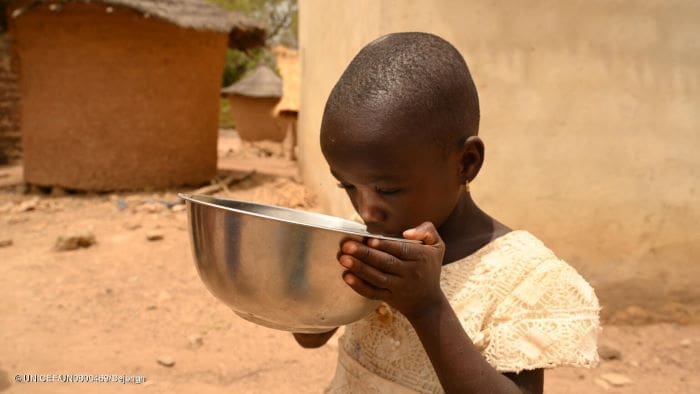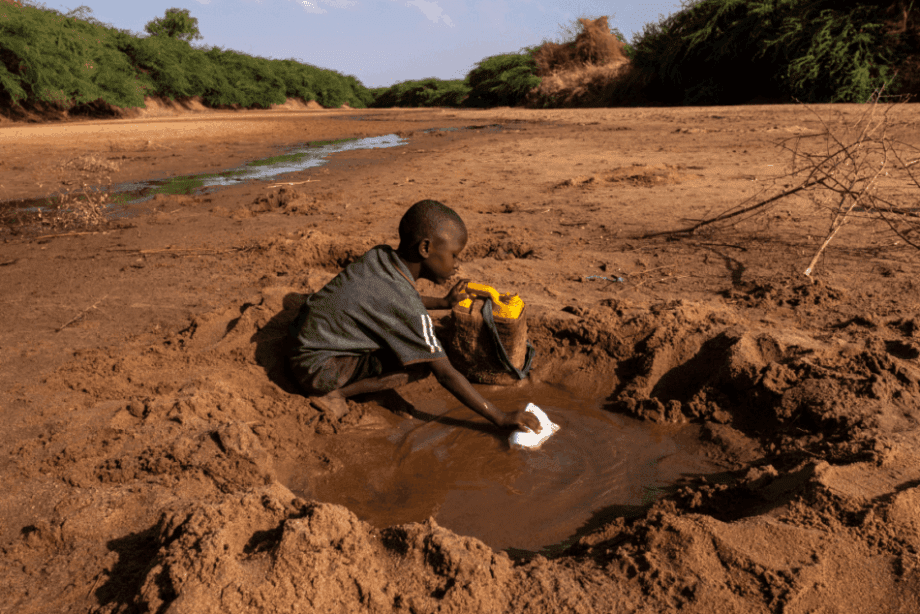A new UNICEF analysis has revealed that one in five children worldwide – approximately 466 million – now live in regions experiencing at least twice the number of extremely hot days annually compared to six decades ago. This stark statistic underscores the rapid acceleration of climate change and its profound impact on the youngest and most vulnerable populations.
The report, which compared temperature data from the 1960s to an average from 2020-2024, highlights that extreme heat, defined as temperatures exceeding 35 degrees Celsius (95 degrees Fahrenheit), is becoming a regular occurrence for millions of children globally.

The findings suggest that these severe temperature increases are happening at a pace and scale that many communities are ill-equipped to handle, particularly in areas lacking the necessary infrastructure and services to mitigate the effects.
UNICEF Executive Director Catherine Russell emphasized the severe consequences of this trend, stating: “The hottest summer days now seem normal. Extreme heat is increasing, disrupting children’s health, well-being, and daily routines.”
The analysis points to significant country-level disparities, with 16 countries now experiencing more than a month of additional extremely hot days compared to the 1960s. In South Sudan, for example, the average number of extremely hot days has risen from 110 in the 1960s to 165 today. Similarly, in Paraguay, the number has nearly doubled, from 36 to 71 days.
West and Central Africa are particularly affected, with 123 million children – 39% of the region’s youth – enduring more than one-third of the year in extreme heat. In countries like Mali, Niger, and Sudan, children are exposed to upwards of 200 days of extreme heat annually.
The health implications for children in these regions are dire. Prolonged exposure to extreme heat can lead to severe heat stress, which poses significant risks to both children and pregnant women.
Heat stress is associated with a range of adverse health outcomes, including complications during pregnancy, low birth weight, preterm birth, and increased vulnerability to diseases like malaria and dengue. Additionally, extreme heat is linked to malnutrition, non-communicable diseases, and negative impacts on neurodevelopment and mental health.
The report also highlights that the intensity and frequency of heatwaves are increasing, with more than half of children in 100 countries experiencing twice as many heatwaves as they did 60 years ago. In the United States alone, 36 million children are now exposed to double the number of heatwaves, and 5.7 million face three times as many.

Beyond health, climate-related hazards such as extreme heat are also exacerbating food and water insecurity, damaging infrastructure, disrupting essential services, and driving displacement. The severity of these impacts is further amplified by existing vulnerabilities and inequities, such as socioeconomic status and geographic location.
UNICEF is urging governments, private sector leaders, and all stakeholders to take immediate and bold climate action. As Member State Parties to the Paris Agreement prepare to submit their updated Nationally Defined Contributions (NDCs), UNICEF is calling for urgent measures to reduce emissions and protect children’s health and well-being.
“Children are not little adults. Their bodies are far more vulnerable to extreme heat,” Russell noted, stressing the importance of adapting social services and empowering children through education and skills development. “Governments must act to get rising temperatures under control, and there is a unique opportunity to do that right now.”
The upcoming NDCs present a crucial moment for governments to commit to ambitious climate actions that will shape the future for today’s children and generations to come. UNICEF’s call to action emphasizes the urgency of safeguarding every child’s right to a clean, healthy, and sustainable environment.
Article Source:
Press Release/Material by UNICEF | UNICEF, Karolinska Institutet ‘A Threat to Progress. Confronting the effects of climate change on child health and well-being.’ ISBN 978-92-806-5579-7
Featured image: A young boy collects what little water he can from a dried up river due to severe drought | Dollow Somalia Credit: ©UNICEF | UN0607653 | Rich




